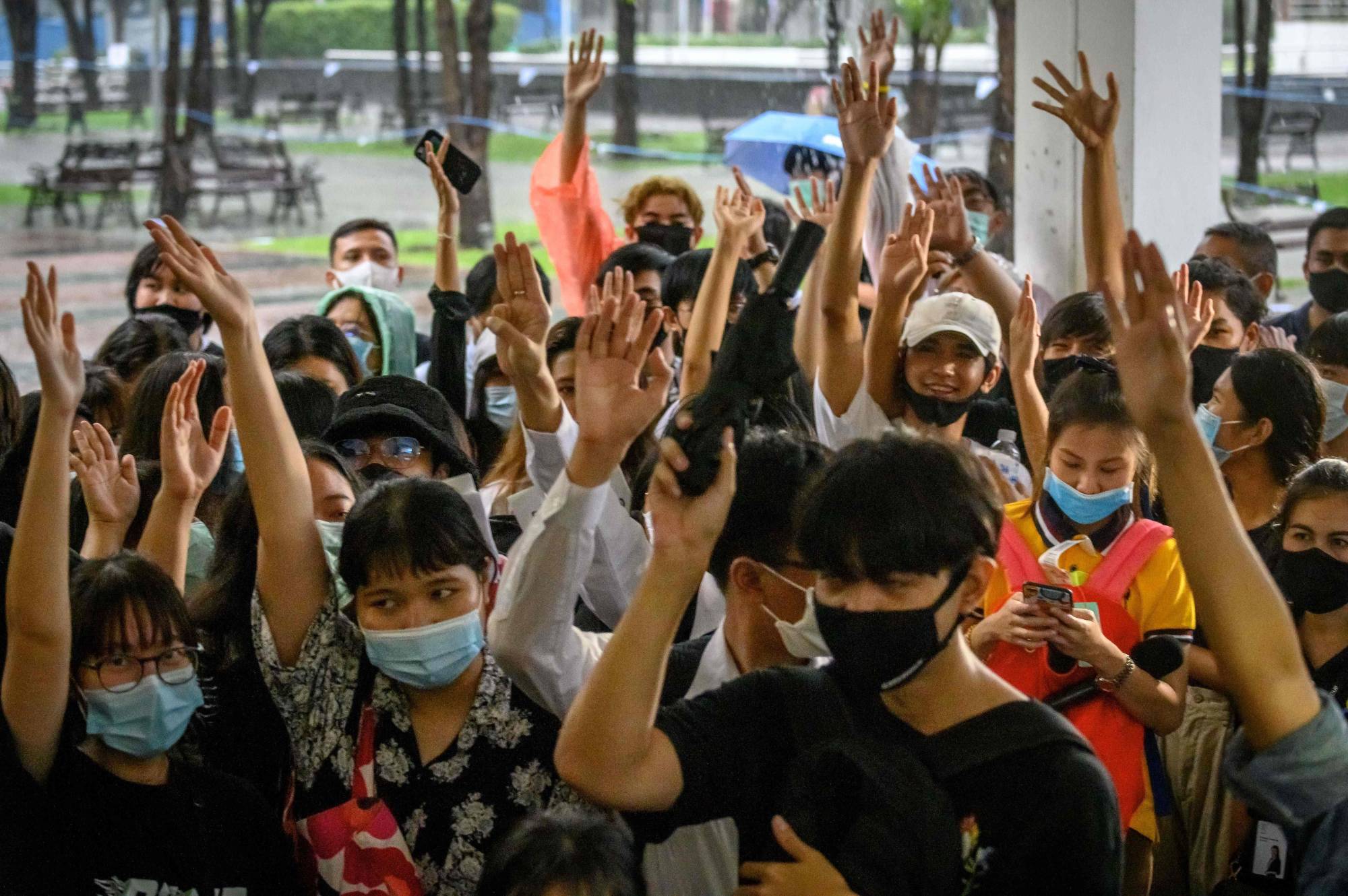It’s long been the case in Thailand that every conversation about the monarchy requires an extra level of alertness.
One must carefully note their surroundings, who could be trusted and who might potentially take offense. Words are chosen delicately, often using coded language, to establish a sense of trust before offering even mild criticism of an institution protected by laws that carry lengthy jail sentences.
The ever-present fear is rooted in history: Perceived opposition to the monarchy has been used for years to justify coups, send political opponents to prison or exile, or even kill them — as happened during a massacre of student protesters at Bangkok’s Thammasat University in 1976.



